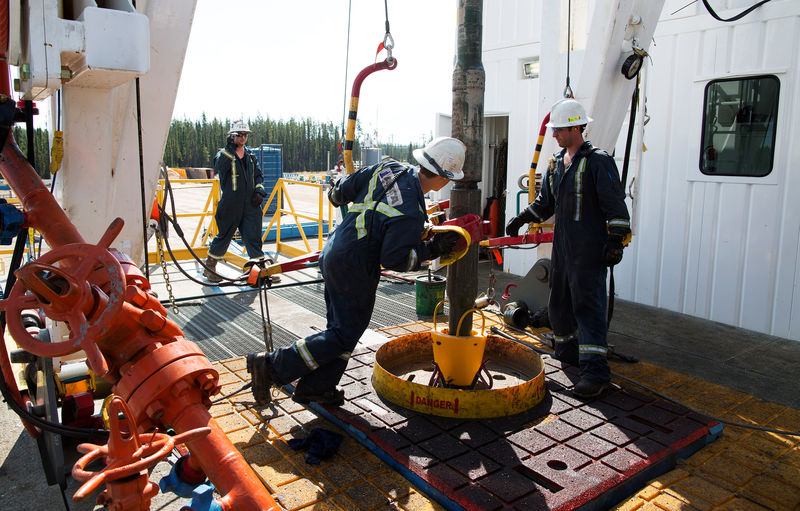Investing.com – Crude oil prices rose Thursday as traders cheered data from a day earlier showing a fall in U.S. crude stockpiles. But concerns about global growth raised by European Central Bank President Mario Draghi kept a lid on gains.
On the New York Mercantile Exchange West Texas intermediate crude futures for September delivery rose 14 cents to settle at $56.02 a barrel, while on London's Intercontinental Exchange, Brent crude, the global benchmark, gained 21 cents to $63.39 a barrel.
For the year, WTI is up 23.6%. Brent has risen 17.8%. U.S. gasoline prices were up slightly to an average $2.751 a gallon on Thursday, according to the American Automobile Association, and have climbed 21.4% this year.
The threat of a slowing global economy on oil-demand growth was in the spotlight once again as Draghi hinted that the central bank would consider adopting more aggressive monetary policy easing measures, including rate cuts amid worries about slowing global growth.
That knocked down some of the optimism on oil prices, which was led by bullish supply-side fundamentals, including data from a day earlier showing a draw in U.S. stockpiles for the sixth-consecutive week.
U.S. crude stocks fell by 10.8 million barrels last week, the Energy Information Administration reported on Wednesday, well above Investing.com's consensus expectations for a draw of 4 million barrels.
That was the sixth-straight weekly decline in domestic crude stockpiles amid signs of tightening supplies globally, as OPEC and its allies continue to cut production and sanctions on Iran and Venezuela squeeze output. There was speculation on Wednesday, however, that the drawdown was also a byproduct of Hurricane Barry, which came ashore on the central Louisiana coast earlier this month and forced many oil platforms to shut in their production.
Against the tug of war between tightening supply and weaker demand in oil markets, rising Middle-East tensions have also underpinned oil prices. But analysts appear relunctant to back a long-term bet on oil prices on turmoil in the region.
"Although tensions in the Middle East and a potential reacceleration in economic data create upside risk to near-term oil prices, our commodity strategists expect long-term oil prices will remain constrained," Goldman Sachs (NYSE:GS) said in a note.
